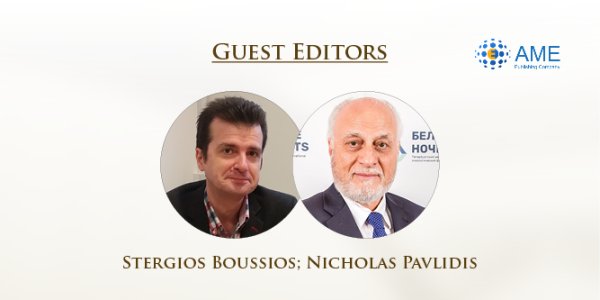
Ovarian cancer is composed of three histological subtypes: epithelial (90%), germ cell (5%), and sex cord stromal cell (5%). Epithelial ovarian cancer (EOC) is the most lethal gynecological disorder due to lack of effective early detection strategies. The forthcoming special series focuses on several key elements that are essential for an understanding of this heterogeneous group of malignancies.
In this special series, we tried to review the state of the art of the diagnosis and treatment and share future challenges in ovarian cancer, although several areas warrant further research. We would like to express our sincere gratitude to the authors for their efforts, diligence and commitment.
Ovarian cancer: state of the art and perspectives of clinical research
Current practices on genetic testing in ovarian cancer
Ovarian cancer risk assessment in the era of next-generation sequencing
NOTCH signalling in ovarian cancer angiogenesis
Development of new poly(ADP-ribose) polymerase (PARP) inhibitors in ovarian cancer: Quo Vadis?
Upfront debulking surgery for high-grade serous ovarian carcinoma: current evidence
Hyperthermic intraperitoneal chemotherapy in ovarian cancer: Qui Bono?
Narrative review on serous primary peritoneal carcinoma of unknown primary site: four questions to be answered
Neoadjuvant treatment for newly diagnosed advanced ovarian cancer: where do we stand and where are we going?
Metformin and ovarian cancer: the evidence
Endometriosis-associated ovarian carcinomas: insights into pathogenesis, diagnostics, and therapeutic targets—a narrative review
Systemic anti-cancer treatment in malignant ovarian germ cell tumours (MOGCTs): current management and promising approaches
Current and future immunotherapy approaches in ovarian cancer
Endometriosis and ovarian cancer risk, an epigenetic connection
Disclosure:
The focused issue “Ovarian Cancer: State of the Art and Perspectives of Clinical Research” was commissioned by the editorial office, Annals of Translational Medicine without any sponsorship or funding. Stergios Boussios and Nicholas Pavlidis are serving as the unpaid Guest Editors for the focused issue.
